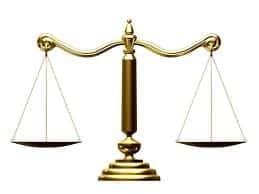Excerpt fromCollision Care, West Virginia Auto Injury Guide,by Jeff Robinette, 2012.
When it comes to looking out for your legal rights after a car accident, motorcycle wreck, or truck collisionyou need to have the attitude you would have if you were seriously ill — get professional help.It is your responsibility, and no one else’s, to look out for your legal rights and seek legal counsel.
When serious medical conditions are ignored, they usually get worse, if not fatal. Similarly, legal “conditions” that are ignored often get worse. This is why injured people should seek legal advice early on in the claim process — to prevent their legal rights from being lost or compromised.
 Clients who get legal help early don’t have to agonize over whether they aremaking good decisions about their injury claim; they rely on their lawyer for such advice. You may have a spouse or other family member who will look out after your medical needs, but who will look out after your legal needs? Be assured that the insurance company will provide no help for you in protecting your legal rights.
Clients who get legal help early don’t have to agonize over whether they aremaking good decisions about their injury claim; they rely on their lawyer for such advice. You may have a spouse or other family member who will look out after your medical needs, but who will look out after your legal needs? Be assured that the insurance company will provide no help for you in protecting your legal rights.
Your duty to preserve your legal rights is not fulfilled by merely giving the investigating police officer your statement at the scene of the collision. Rather, you have acontinuing dutyto ensure you comply with statutory laws and court procedures so that none of your injury claims will be denied or minimized by the insurance adjuster or their hired defense lawyer in court.
Pre-Accident and Post-Accident Conduct
As stated previously, neither the insurance company, nor its defense lawyers, will provide any assistance to you in preserving evidence, seeking the right medical doctors, or getting expert opinions that support your claim. Their job is to ambush you, not help you. They will be evaluating the validity of your auto injury claim on yourpre-collision conductandpost-collision conduct.
The reason that pre-collision and post-collision conduct is so vital to your auto injury claim is because complex laws and trial court procedures-which insurance adjusters rely on to deny or minimize your claim-require that bothliabilityagainst the other driver and the type and amount ofdamagesyou sustained from the collision be proven under trial court standards.
Pre-collision conduct is a major factor in determining whether liability can be proven in a court of law against the at-fault driver, and both your and their conduct together will be the primary consideration in an insurance adjustor’s liability evaluation of your injury claim.
Likewise,post-collision conduct —whether you timely sought medical treatment, whether you kept all your medical appointments, what you told the doctor, etc.– is an equally significant factor in determining whether yourdamagescan be proven in a court of law. This information has a significant impact on the insurance adjuster’sdamage evaluationof the claim.
Remember though, that only an experienced trial lawyer, focusing on auto injury claims, knows how to preserveallyour legal rights, not just some of them, against the attempts of the insurance adjuster to defeat your claim.
Questions? Call today: 304-594-1800 or after hours, 304-216-6695.
To Read More,Click here to visit Free Legal Books for West Virginia Injury Victims and Their Families.
Articles from our Library:
If You Wait, It May Be Too Late
Seven Facts You Need To Know if You’ve Been Injured In West Virginia
Why is Insurance Offering So Little For my Injury Claim?
Find Jeff Robinette on Google.
Jeffery Robinette was admitted to practice law in 1991 and is licensed in all levels of state and federal trial courts in West Virginia. Mr. Robinette is also licensed in all state and federal appeals courts in West Virginia and the United States Supreme Court. As a National Board Certified Trial Attorney who has handled hundreds of motor vehicle, injury, and construction defect claims and a leading author on insurance claims settlement issues and difficulties in West Virginia, Jeff Robinette is uniquely qualified to represent your best interest.




